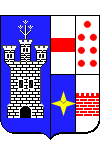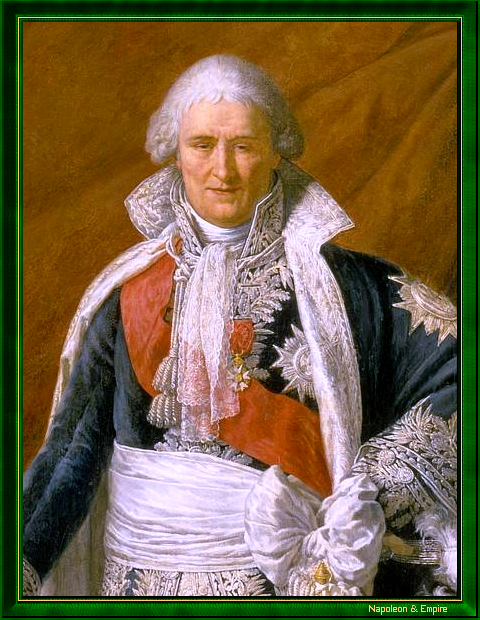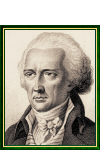Jean-Étienne-Marie Portalis
Grand Eagle of the Légion d'Honneur
Pronunciation:

Jean-Etienne-Marie Portalis was born on April 1, 1746 in Le Beausset, near Aix, in Provence. Under the Ancien Régime, he pursued a career as a lawyer in the Aix parliament. This culminated in a divorce case he won for the Countess de Mirabeau in 1782-1783.
This professional success, which earned him the definitive enmity of his husband, led to his unsuccessful candidacy for the Estates General in 1789. From then on, he kept his distance from a Revolution for which he felt little affinity. In 1792, however, suspected of royalism, he was forced to leave his town for Lyon, then Paris, where he was finally arrested and imprisoned during the Terror.
Released after the 9th Thermidor, he resumed his practice as a lawyer and was elected to the Conseil des Anciens in 1796. His royalist views made him one of the leaders of the counter-revolutionary party, and led to his exile following the coup d'état of 18 fructidor an V.
He did not return to France until after 18 Brumaire. On the recommendation of Charles-François Lebrun, the third consul, Portalis's political friend, First Consul Napoleon Bonaparte appointed him Government Commissioner, then State Councillor.
In August 1800, he joined the commission responsible for drafting the Civil Code. He worked alongside Bigot de Préameneu, Jacques de Maleville and François Denis Tronchet, all under the direction of Jean-Jacques Régis de Cambacérès. After several years of work, during which Portalis was particularly involved in the articles on worship, marriage and inheritance, he was given the honor of presenting the new code to the Corps Législatif and drafting the Preliminary Discourse.
During the same period, he also played an active role in negotiating the Concordat, which he presented to the Corps Législatif in 1801, was elected to the Académie Française in 1803 and became Minister of Religious Affairs in July 1804, after three years as Director General. He showed himself to be a good Gallican, but, according to Napoleon, lacked the necessary firmness.
Stricken by near-blindness shortly after his appointment, Portalis nevertheless held his post until his death on August 25, 1807 in Paris, following an unsuccessful cataract operation. The Emperor accorded him a sumptuous funeral and placed him in the Panthéon , in vault V .
"Jean-Étienne-Marie Portalis" by Pierre-Claude Gautherot (a.k.a. Claude Gautherot, Paris 1769 - Paris 1825).

In 1973, the French Postal Service released a 0.45 Franc stamp bearing the images of Jean Portalis and First Consul Napoleon Bonaparte .
A statue by Portalis honors his memory in front of the Aix-en-Provence courthouse.
Other portraits

"Jean-Étienne-Marie Portalis". Engraving by Ambroise Tardieu (Paris 1818 - Paris 1879).